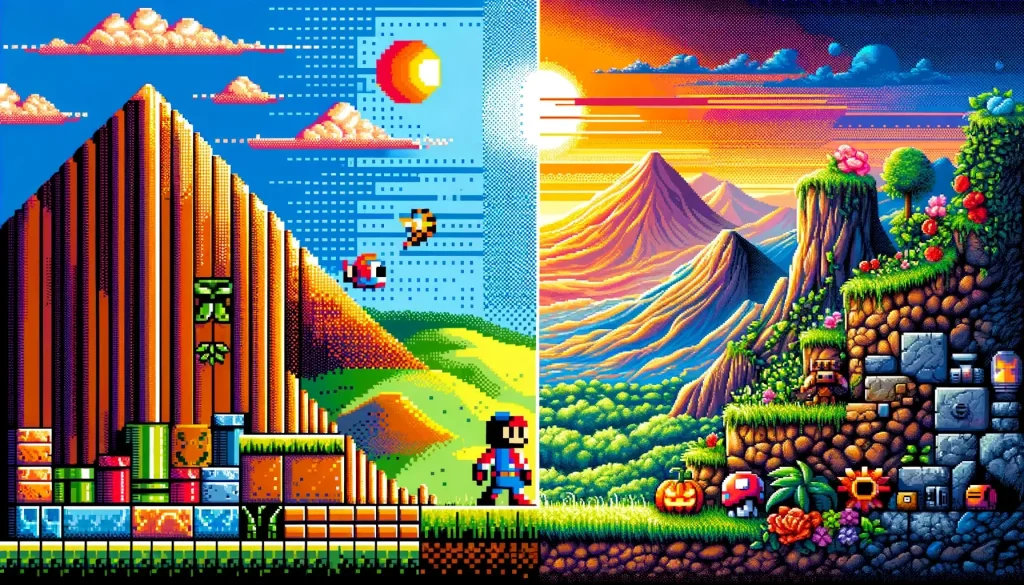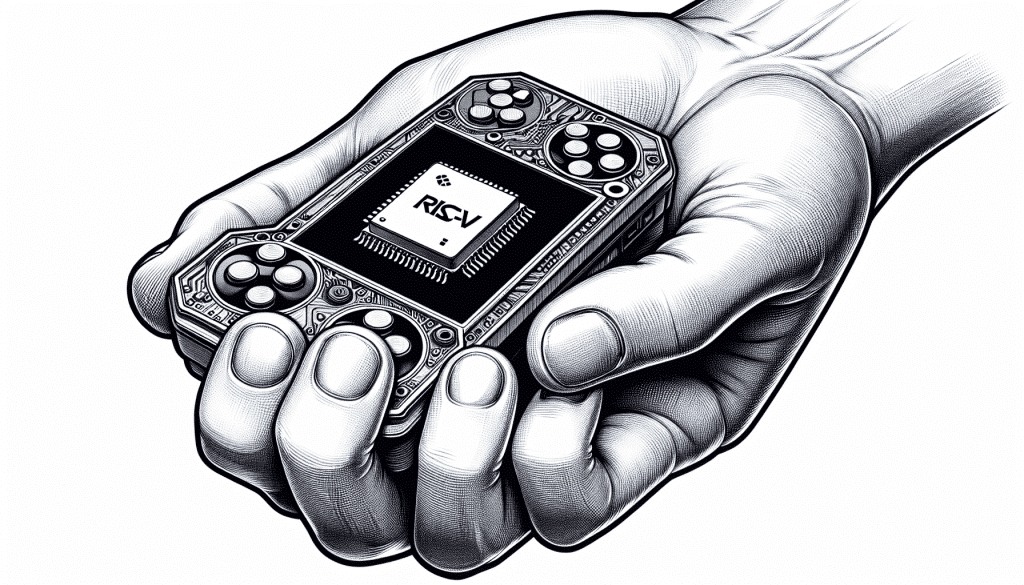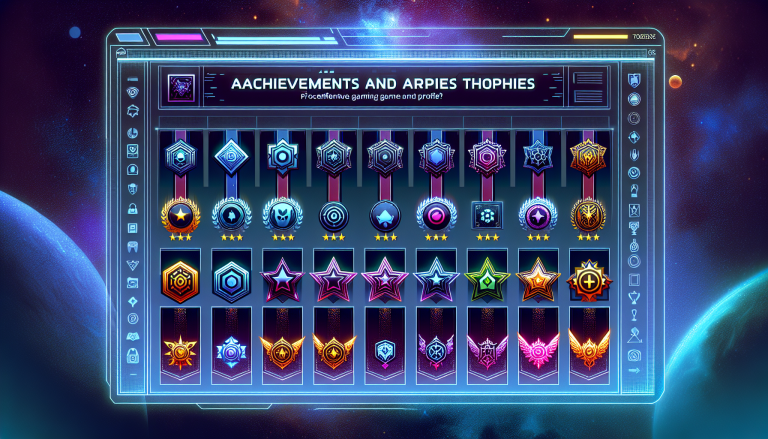Introduction to Game Development Engines
Hey there, fellow gamers and aspiring game developers! Have you ever wondered how your favorite video games come to life? Well, it all starts with game development engines. These powerful tools are the backbone of game creation, allowing developers to bring their creative visions to reality.
But what exactly are game development engines? In simple terms, they are software platforms that provide a set of tools and resources for designing, building, and deploying video games. They help streamline the development process, making it easier for developers to focus on the creative aspects of their games.
Game development engines have come a long way since the early days of the gaming industry. Back in the 1970s and 1980s, game development was a much more challenging and time-consuming process. Developers had to build games from scratch, writing code line by line, and creating their own game engines.
However, everything changed with the advent of early game development engines like Adventure Game Interpreter (AGI) and Z-machine. These engines provided a framework for developers to create interactive text-based adventure games. Suddenly, game development became more accessible and efficient.
As technology advanced, so did game development engines. Modern engines like Unity, Unreal Engine, and CryEngine revolutionized the industry by offering powerful features and stunning graphics capabilities. These engines are now used by professionals and indie developers alike to create games for various platforms, including PCs, consoles, and mobile devices.
The impact of game development engines on the gaming industry cannot be overstated. They have democratized game development, allowing individuals with little to no coding experience to create their own games. This has led to a surge in indie game development, resulting in a diverse range of unique and innovative titles.
Moreover, game development engines have also enabled developers to push the boundaries of what is possible in gaming. The advancements in graphics, physics, and artificial intelligence made possible by these engines have led to immersive and realistic gaming experiences that captivate players worldwide.
So, if you’re thinking about diving into the world of game development, choosing the right game development engine is crucial. You’ll want to consider factors like your skill level, the type of game you want to create, and the platform you intend to target. Unity, for example, is a great choice for beginners due to its user-friendly interface and extensive documentation.
Remember, learning to use a game development engine is just the first step. Don’t forget to also hone your design and programming skills, as they are essential for creating engaging and enjoyable games. And always keep in mind that perseverance and a passion for game development are key to success.
Now that you have a better understanding of game development engines, it’s time to embark on your own game development journey. Whether you’re a hobbyist or aspiring professional, these engines will be your guiding light in creating the next gaming masterpiece!
Early Game Development Engines and their Impact
Welcome back! In the world of game development, there have been countless innovations and advancements over the years. One of the key factors that has revolutionized the way games are created is the development of game engines. These powerful tools have played a significant role in shaping the landscape of the gaming industry. Today, let’s take a trip down memory lane and explore the early game development engines and their impact on the world of gaming.
During the early days of game development, developers had to build games from scratch. This was a time-consuming and complex process that required extensive coding knowledge. However, with the advent of game development engines, things began to change. These engines provided developers with pre-built frameworks and tools that made game creation more accessible and efficient.
One of the earliest game development engines that made a significant impact was the Quake Engine. Released in 1996 by id Software, this engine powered the popular first-person shooter game, Quake. It introduced groundbreaking features such as real-time 3D rendering and multiplayer capabilities. The Quake Engine paved the way for more immersive and interactive gaming experiences.
Another influential game development engine was the Unreal Engine, developed by Epic Games. Initially released in 1998, this engine has become one of the most widely used and respected engines in the industry. It brought advanced graphics, physics simulations, and scripting capabilities to game developers. The Unreal Engine empowered creators to push the boundaries of what was possible in terms of visual fidelity and gameplay mechanics.
These early game development engines not only provided developers with the tools they needed but also played a crucial role in shaping the industry. They set the standards for what gamers expected from future games and inspired a new generation of developers to push the boundaries of creativity and innovation.
As technology advanced, so did the game development engines. Modern engines like Unity, Unreal Engine 4, and CryEngine have taken the tools and features of their predecessors to a whole new level. These engines offer a wealth of resources, including comprehensive toolsets, visual scripting systems, and extensive documentation.
Unity, for example, has become a go-to engine for indie developers due to its user-friendly interface and cross-platform support. It allows developers to create games for a wide range of platforms, including mobile devices, consoles, and PCs. Unity has also made it easier for developers to collaborate and share their creations with the vibrant community of game developers.
Unreal Engine 4, on the other hand, has continued to push the boundaries of visual fidelity with its advanced rendering capabilities. The engine features a powerful and intuitive visual scripting system called Blueprint, enabling developers to create complex gameplay mechanics without extensive coding knowledge. It has been used to create stunning games like Fortnite and Gears of War.
Looking ahead, the future of game development engines is incredibly promising. With advancements in technology, we can expect even more powerful and accessible tools for developers. Augmented reality (AR) and virtual reality (VR) are rapidly evolving, and game development engines are at the forefront of bringing immersive experiences to these platforms.
In conclusion, early game development engines like the Quake Engine and Unreal Engine laid the foundation for the modern gaming industry. They provided developers with the necessary tools to create groundbreaking games and set the stage for future innovations. Today, engines like Unity and Unreal Engine 4 continue to shape the industry and inspire developers to create captivating and immersive gaming experiences. The future of game development engines holds immense potential, and we’re excited to see what lies ahead!
Modern Game Development Engines and their Advancements
Welcome back, fellow gamers! In this section, we are going to dive into the fascinating world of modern game development engines and explore the incredible advancements they have brought to the gaming industry. Game development engines are the backbone of creating immersive and visually stunning games, and they have come a long way since their early days. So, grab your controller and let’s get started!
A New Era of Possibilities
Gone are the days when game development was solely the realm of programming wizards. Thanks to the advancements in game development engines, anyone with a passion for gaming can now bring their creative visions to life. These engines provide developers with powerful tools and intuitive interfaces, allowing them to focus on the fun part – designing captivating gameplay experiences.
One of the most popular modern game development engines is Unreal Engine. Developed by Epic Games, this engine has revolutionized the industry with its stunning graphics and unmatched versatility. From breathtaking open-world adventures to fast-paced multiplayer shooters, Unreal Engine has been the driving force behind numerous blockbuster games.
Another notable game development engine is Unity. Known for its user-friendly interface and cross-platform capabilities, Unity has become a go-to choice for indie developers and large studios alike. With its extensive asset store and robust community support, Unity empowers developers to create games for a wide range of platforms, including mobile devices, consoles, and even virtual reality.
Unleashing the Power of Realism
One of the most exciting advancements in modern game development engines is the focus on realism. Developers are now able to create incredibly lifelike worlds that blur the line between virtual and reality. With sophisticated rendering techniques and advanced physics simulations, games today can transport players to immersive and believable environments.
Ray tracing is a cutting-edge technology that has taken the gaming industry by storm. This technique accurately simulates how light interacts with objects, resulting in stunning visuals with realistic reflections, shadows, and global illumination. Thanks to advancements in hardware and game engines, ray tracing is now more accessible than ever, allowing developers to create visually breathtaking games that push the boundaries of realism.
Empowering Creativity and Accessibility
Modern game development engines have also made game creation more accessible and inclusive. With intuitive drag-and-drop interfaces and visual scripting systems, developers no longer need to be coding experts to bring their ideas to life. This has opened up opportunities for a more diverse range of voices and perspectives in the gaming industry.
Additionally, game development engines have made it easier to create games for different platforms. With the rise of mobile gaming, the ability to develop cross-platform games has become crucial. Whether you’re playing on a console, PC, or smartphone, game engines like Unity and Unreal Engine allow developers to create games that can be enjoyed by players across various devices.
Remember, if you’re interested in game development, don’t be afraid to dive in and explore these powerful game engines. With countless tutorials, forums, and resources available online, there has never been a better time to start creating your very own games. Whether you’re a seasoned developer or a curious beginner, the possibilities are endless!
So, strap on your creativity and let your imagination run wild. Who knows, you might just create the next gaming masterpiece that captivates players around the world. Happy game developing!
The Future of Game Development Engines and its Potential Impact
Now that we have explored the early and modern game development engines and their impact, let’s take a look into the future. The world of game development is constantly evolving, and it’s exciting to see where game development engines are heading.
The Rise of Virtual Reality and Augmented Reality
One of the most significant areas of growth in the gaming industry is the rise of virtual reality (VR) and augmented reality (AR). These technologies have the potential to completely revolutionize the way we experience games. Game development engines are adapting to this trend by providing tools and features specifically designed for VR and AR development.
With the advancement of hardware such as the Oculus Rift, HTC Vive, and the rise of mobile AR platforms like Apple’s ARKit and Google’s ARCore, game developers have more opportunities than ever to create immersive and interactive experiences. Game development engines are enabling developers to easily integrate VR and AR elements into their games, making it more accessible for both indie and AAA developers.
The Power of Artificial Intelligence
Artificial intelligence (AI) is another area that holds immense potential for game development engines. AI technology has already made significant strides in the gaming industry, with NPCs (non-player characters) becoming smarter and more realistic. Game development engines are incorporating AI tools and frameworks, making it easier for developers to implement intelligent behaviors and decision-making systems into their games.
AI can enhance various aspects of game development, including enemy behavior, procedural generation, and even game design itself. Imagine a game that can adapt to your playstyle and challenge you in new and exciting ways. Game development engines are making this a reality by providing AI tools that empower developers to create dynamic and engaging gameplay experiences.
The Accessibility Revolution
Accessibility has always been an important aspect of game development, but it is becoming an even more significant focus in recent years. Game development engines are recognizing the need to make games accessible to a broader audience, including players with disabilities.
With features such as built-in text-to-speech, colorblind modes, and customizable controls, game development engines are empowering developers to create games that can be enjoyed by everyone. This inclusivity not only enhances the gaming experience for players with disabilities but also opens up new opportunities for developers to reach a wider audience.
The Importance of Cross-platform Development
In today’s gaming landscape, cross-platform compatibility is more important than ever. Players want the freedom to play their favorite games on multiple devices, whether it’s a PC, console, or mobile device. Game development engines are recognizing this demand and are focusing on providing robust cross-platform development tools.
Developers can now use game development engines to create games that can be easily ported to different platforms without sacrificing performance or functionality. This not only saves time and resources but also allows developers to reach a larger player base.
As the gaming industry continues to grow and evolve, game development engines will play a crucial role in driving innovation. With the rise of VR and AR, the power of AI, the focus on accessibility, and the importance of cross-platform development, game developers have more tools and opportunities than ever before.












